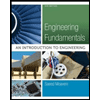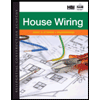Consider, M people (aka pax) who want to travel by car from O to D. They all start working at D at Q (e.g., Q-8am). If a person departs at time t, assume the time needed to go from O to D is given by c(t)=A+Bx(t), where x(t) is the flow of people departing at time t [car/unit of time]. In addition, a is the penalty for being early at work (E(t) is how early the person arrived when departing at time t), and ẞ is the penalty for being late at work (L(t) is how late the person arrived when departing at time t). Assume 0 < a < 1 < ß. Further assume the departure time choice problem under the equilibrium conditions. Prove that the arrival time of people who depart when most of the M people start their trips is equal to Q.
Consider, M people (aka pax) who want to travel by car from O to D. They all start working at D at Q (e.g., Q-8am). If a person departs at time t, assume the time needed to go from O to D is given by c(t)=A+Bx(t), where x(t) is the flow of people departing at time t [car/unit of time]. In addition, a is the penalty for being early at work (E(t) is how early the person arrived when departing at time t), and ẞ is the penalty for being late at work (L(t) is how late the person arrived when departing at time t). Assume 0 < a < 1 < ß. Further assume the departure time choice problem under the equilibrium conditions. Prove that the arrival time of people who depart when most of the M people start their trips is equal to Q.
Engineering Fundamentals: An Introduction to Engineering (MindTap Course List)
5th Edition
ISBN:9781305084766
Author:Saeed Moaveni
Publisher:Saeed Moaveni
Chapter9: Mass And Mass-related Variables In Engineering
Section: Chapter Questions
Problem 48P
Related questions
Question
![Consider, M people (aka pax) who want to travel by car from O to D. They all start working at
D at Q (e.g., Q-8am). If a person departs at time t, assume the time needed to go from O to D
is given by c(t)=A+Bx(t), where x(t) is the flow of people departing at time t [car/unit of time].
In addition, a is the penalty for being early at work (E(t) is how early the person arrived when
departing at time t), and ẞ is the penalty for being late at work (L(t) is how late the person
arrived when departing at time t). Assume 0 < a < 1 < ß. Further assume the departure time
choice problem under the equilibrium conditions. Prove that the arrival time of people who
depart when most of the M people start their trips is equal to Q.](/v2/_next/image?url=https%3A%2F%2Fcontent.bartleby.com%2Fqna-images%2Fquestion%2Fb4d9d51c-cee3-4855-8494-55e8cc009ab5%2Faf8d424b-27fa-4c19-843d-b5f4c969536e%2Fmruujaq_processed.png&w=3840&q=75)
Transcribed Image Text:Consider, M people (aka pax) who want to travel by car from O to D. They all start working at
D at Q (e.g., Q-8am). If a person departs at time t, assume the time needed to go from O to D
is given by c(t)=A+Bx(t), where x(t) is the flow of people departing at time t [car/unit of time].
In addition, a is the penalty for being early at work (E(t) is how early the person arrived when
departing at time t), and ẞ is the penalty for being late at work (L(t) is how late the person
arrived when departing at time t). Assume 0 < a < 1 < ß. Further assume the departure time
choice problem under the equilibrium conditions. Prove that the arrival time of people who
depart when most of the M people start their trips is equal to Q.
Expert Solution
This question has been solved!
Explore an expertly crafted, step-by-step solution for a thorough understanding of key concepts.
Step by step
Solved in 2 steps

Recommended textbooks for you

Engineering Fundamentals: An Introduction to Engi…
Civil Engineering
ISBN:
9781305084766
Author:
Saeed Moaveni
Publisher:
Cengage Learning

Residential Construction Academy: House Wiring (M…
Civil Engineering
ISBN:
9781285852225
Author:
Gregory W Fletcher
Publisher:
Cengage Learning

Engineering Fundamentals: An Introduction to Engi…
Civil Engineering
ISBN:
9781305084766
Author:
Saeed Moaveni
Publisher:
Cengage Learning

Residential Construction Academy: House Wiring (M…
Civil Engineering
ISBN:
9781285852225
Author:
Gregory W Fletcher
Publisher:
Cengage Learning